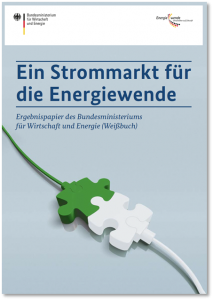At the 5th symposium “Energiehandel 2022” on 15th and 16th of March 2016, experts from industry and politics have been discussing the electricity market act 2.0 in view of the energy transition and the German nuclear phase-out by 2022. The event, which was organized by Energy Brainpool, addressed the constantly changing market conditions, new regulations and the long-term safeguard of economic efficiency and security of supply in the energy market.

The first day of the event was coined by a discussion about the implementation and evaluation of the proposed electricity market act (EnWG) by market actors. Dr. Kathrin Tomaschki from the Federal Ministry for Economic Affairs and Energy (BMWi) presented the key points of the new act and the objectives behind the act. According to her, the electricity market act will not revolutionize the power market. This was however also not intended. On the contrary, the investigations and studies of the BMWi revealed that the evolution of the Energy-Only-Market is more cost-effective and can do without a capacity market. She stressed that the capacity reserve and the back-up reserve are no market support, but purely constitute systemic support.
Andreas Kuhlmann from the German Energy Agency (dena) outlined an explicit evaluation of the current electricity market act: The key points of the new act are oriented towards the past and will only be of little avail. He noted that no measures for sector coupling between the power and the heat market have been defined. Furthermore, future measures in respect to security of supply and the realization of the German climate goals are also not elaborated on.
Experts from Vattenfall and RWE presented the view on the electricity market act from the viewpoint of big energy companies. In parts they doubt the feasibility and cost-effectiveness of some of the measures in respect to competition and the capacity reserve. Vattenfall’s Susann Wöhlke however demonstrated that investment incentives for new power plants in the Energy-Only-Market of the past have been high enough. Similarly, future incentives are expected to accomplish the same she said.



